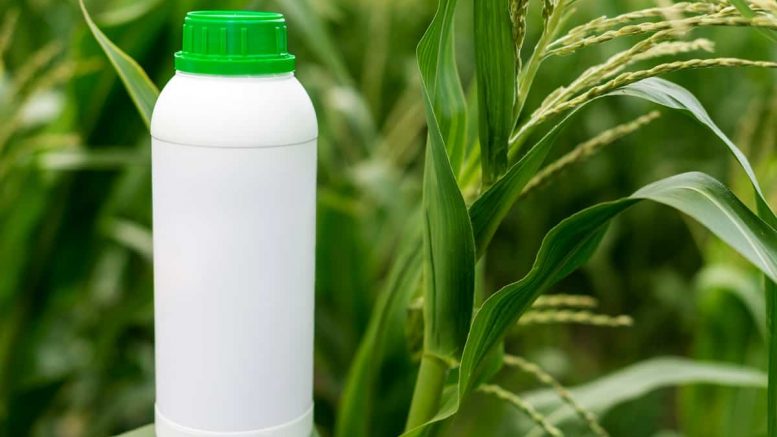“Brazilian analysis process for pesticide registration is one of the most complete in the world, but the products still need to be registered by the States.”
Luís Carlos Ribeiro is the executive director of the Brazilian Association of Post-Patent Pesticides – Aenda, and member of the Council of the National Institute for Processing Empty Pesticide Packages. Ribeiro is an agronomist from the Federal and Rural University of Rio de Janeiro, master and specialist in plant protection from the Federal University of Viçosa.

Luís Ribeiro, CEO of Aenda
AgriBrasilis – What is the purpose of the State registration of pesticides? What are its critical points?
Luís Ribeiro – The Constitution defines that it is the competence of the Federal Government, the States, and the Federal District to legislate together in the following areas: production and consumption; forests; hunting; fishing; fauna; nature conservation; defense of soil and natural resources; environmental protection and pollution control; social security; health protection and advocacy.
Law No. 7802/89, that is the law of general rules for pesticides, provides for: research and experimentation; production; registration and use; packaging and labelling; trade and advertising; transport and storage; import and export; destination of residues and used packaging; control – inspection and supervision.
With these determinations, Brazil aligns itself with the international community.
Registration
It is the Federal Government’s responsibility to register pesticides, their components, and related products, in addition to fertilizers.
States are responsible for registering companies that import, export and/or sell pesticides.
Legislation
Federal Government legislates on production; registration; interstate commerce; export, import; transportation; classification; technological and toxicological control.
States must legislate on (supplementary) production; use of pesticides, consumption; trade (local) and storage.
Inspection
Federal Government must supervise manufacturing establishments; importers and exporters; and research areas. It must also analyze national and imported products; control and supervise production, export, and import.
It is up to the States to supervise pesticide use, trade, storage and internal transport.
For the States to be able to exercise their part of the inspection, their legislation includes the need for companies that hold registrations of pesticides to promote the State registration of these products with the State Agency for Plant Protection in each State, presenting information, documents, and payment of fees.
Only after analyzing the documentation does the State agency allows the companies to be able to sell, transport, and store products. Still, only after this analysis can professionals sign agronomical recommendations and can farmers acquire and use the products.
State pesticide registration is a tool used by States to obtain information that will be part of their databases to enable inspection.
Companies depend on the legislation of each State, the structure of each State agency and some special requirements that some of them can have. Example of this type of requirement: companies must present a series of documents from the country of origin of the imported pesticide, that is, they determine that the product must be used in that country. However, often in the country of origin there are no crops for which the product is used. This created complications and makes it very difficult to register the product.
We understand that the products are duly registered by the Federal Government. They were submitted to a series of analyzes by the three ministries (MAPA, Anvisa and Ibama). Pesticide registration process can take 8 years, for example. Brazilian analysis process for pesticide registration is one of the most complete in the world, but there is still a need for these products to be registered by the States.
Today, Federal agencies have on their websites all the information released for registered products; State agencies could use this information to reduce the need to receive the same information from each company.
Another critical factor is the fees charged by the States for authorizing products. Some States charge very high fees, scaled by the toxicological classification of the products, while others charge an annual renewal and maintenance fee. Some States have renewals every two years, or every five years. So, it is necessary to know each State legislation.
When there is a need to change the product documentation in the State, an amount is paid for the process. However, there are States where, instead of charging for the change process, a fee is charged for each change in the product, that is, if a new crop is added to the product, there is a charge for the new crop, for each biological target of that crop, each dose change, new instructions for use, etc. Fees for these cases are enormous, much higher than the fee for a new State registration.
There are States that, when a company sells directly to the end customer, require the request of an “import authorization” from the State agency for the product, since it will come from another State. This can be considered critical, as we live in a Federation, and the Federal Government legislates on interstate commerce.
There is not the slightest doubt that the work of inspection by the States is of paramount importance and it would be very important if the fees received by the States, whether for pesticide State registration, changes in documentation, renewals, etc., were reverted to the benefit of State agencies and that could be used for the benefit of the institution.
AgriBrasilis – Is it possible to sell products without the respective State registrations?
Luís Ribeiro – No, the products are only released for sale after completing the product registration request.
AgriBrasilis – How much does it cost to register a product in all States?
Luís Ribeiro – Fees are instituted in the States upon publication of a Law, and each one charges differently. There are States that set an annual amount. There are others in which the value is paid monthly. Having an approximate calculation for the month of January 2023, the sum for 24 States is approximately US$ 20.99 thousand. For the time being, there is no charge for this service in the State of São Paulo and the Federal District.
AgriBrasilis – How long does it take for State registration approval?
Luís Ribeiro – It varies greatly, as there are States that receive the process via email, others, mainly in the Northeast, request that it be sent via Post Office. There are States that are very hard to contact, as they have a small staff of inspectors, and the infrastructure needs to be improved. Implementation of electronic systems to streamline processes is essential.
AgriBrasilis – What are the most frequent cases of non-compliance?
Luís Ribeiro – Each State has its particularities, but generally the most common cases refer to the difficulty of contacting some States, feedback on the progress of processes, issuance of registration certificates, delays, and requirements that Federal agencies do not ask for during the evaluation of registration, such as requesting proof of use in the product’s country of origin.
AgriBrasilis – Why are there stricter laws in some States?
Luís Ribeiro – Each State has its own case. There is a “culture” that, even if the product has already been properly analyzed by the Federal agencies, the States are responsible for health and environmental safety in their regions and, for that, they require that the products pass through the scrutiny of the State agency, even as if it were a “mini re-registration”.
AgriBrasilis – Is there a possibility of harmonizing legislation between States?
Luís Ribeiro – We already discussed this in an event that we held among all State inspectors, called Enfisa – National Meeting of State Inspections and National Seminar on Agrochemicals. But because of the different regionalities, environment, population culture, among other aspects, this topic has not evolved.
AgriBrasilis – How is the inspection of pesticides carried out by the States?
Luís Ribeiro – After the product is properly registered, it can already be recommended by the agronomist through the agronomic recommendation.
The farmer carries out the acquisition in a distribution/resale channel, cooperative, or through direct acquisition from the registration holder, and in accordance with the information contained in the agronomic recommendation and the product leaflet. Products can be used following all the safety guidelines contained in these documents.
State inspectors act in the trade by checking whether distributors are registered with the State Plant Protection Agency, in addition to aspects of storage, transport in the State and use of the product in the farms. Farmers are also inspected to guarantee that they follow the correct recommendations in all aspects until the time of harvesting.
READ MORE:

